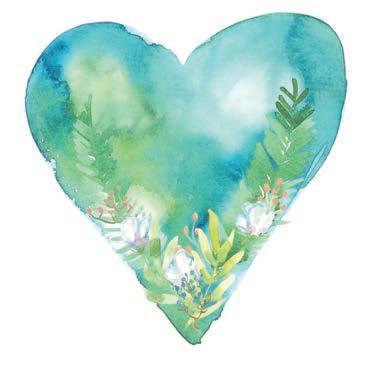Christmas: who does it better? The first COVID Christmas means the season to be jolly will look and feel a lot different for most Australians this year. But for tens of thousands of immigrants it will quite literally be a world away from the type of festivities they are used to. WORDS: TRACEY PORTER
F
rom cheesecake and clerico to panettone and prawns, the rituals many Australians adopt in the lead up to Christmas are anything but traditional. For those who have grown up here, the silly season invariably involves a mixture of surfing santas, drinks with neighbours, festive road trips, backyard cricket and an abundance of seafood platters. Enclosed footwear is as rare as a cold barbecue and a warm beer and locating an empty esky nigh on impossible. A far cry from the romantic snowladen, garish festive jumper-wearing, sleighbell-ringing, carol-singing, mulled wine-swigging, turducken-chomping festivities that advent calendars and cheesy television commercials would have us believe represents a traditional Chrissy. But for the 7.5 million migrants (or one third of us) who were born overseas, the combination of summer and seafood means it will never replicate the Christmases of their birthplace. Christmas changed dramatically for then 11-year-old Vera Luczo, when her family emigrated to Australia from a small Serbian village, where they lived in poverty. For a start, in Serbia, Christmas is on January 7, as per the prevailing religion of Serbian Orthodox Christianity. Vera says her family could not afford a Christmas Tree 28 TVO
so had to make do with breaking a small branch off a tree and wrapping it in foil. The children would hang wrapped lollies and walnuts tied with string on the branch for decorations. Traditions included the throwing of lollies and walnuts into the corners of the rooms for good luck, and the giving of a small gift, such as a lolly or a towel, to the first person to walk into your house on the belated Christmas Day, Vera recalls. There was never money for a true feast, but her parents always made the table special – if it was finding a bit of smoked meat for the cabbage rolls or killing a chicken for fresh chicken soup – both big treats. If the kids got a banana or orange for Christmas they were delighted, she says. After settling in Australia, the family kept marking January 7, with December 25 becoming an added bonus. After all, who would say no to two Christmases’? Vera says her favourite things about Christmas in Australia are in the build-up – all the decorations and Christmas music. Her memory of Serbian Christmas music is limited to harmonica tunes. Vera’s husband Steve spent his first 11 years in a small Hungarian village, before his family immigrated to Australia in search of better job opportunities.






